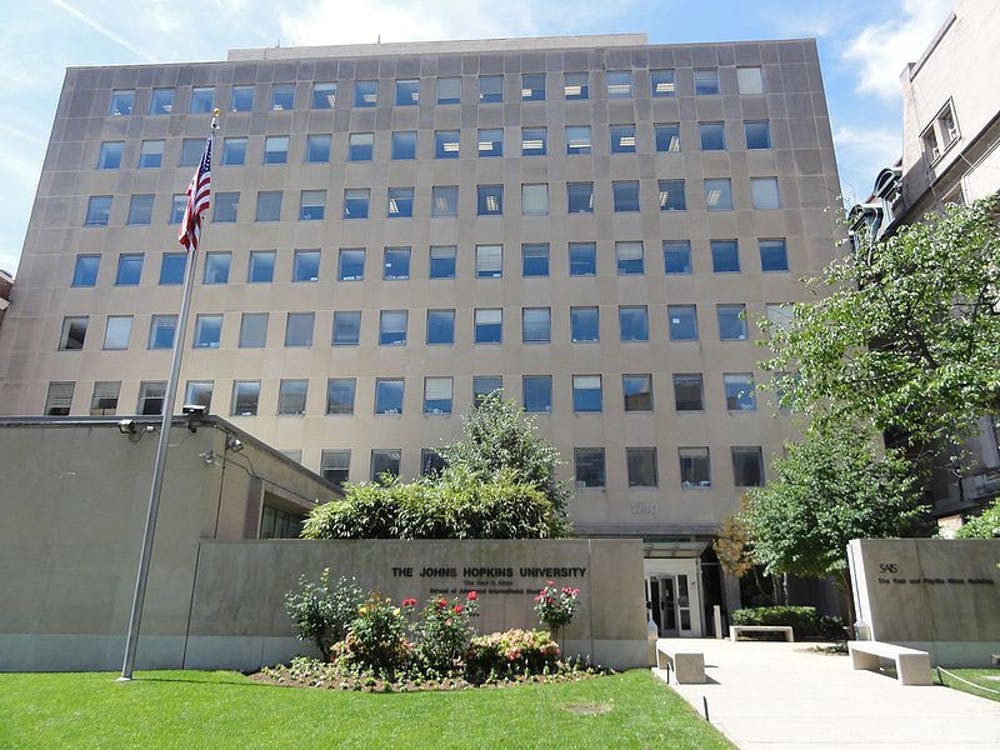The School of Advanced International Studies (SAIS) featured retired Colonel and SAIS Chief of Staff Craig Osborne as part of its Dean’s Speaker Series on Sept. 30. The event was moderated by SAIS Dean Eliot A. Cohen.
During his career in the military, Osborne took part in several combat deployments to Iraq and Afghanistan. He also served as the deputy executive assistant and special assistant to the chairman of the Joint Chiefs of Staff in the Pentagon and executive officer to the president of the National Defense University.
Osborne explained that his career taught him how to be resilient in various situations.
“There’s not a one-size-fits-all to resiliency,” he said. “Resilience is the ability to bounce back from adversity... Different challenges and different circumstances can require us to modify how we respond to stressors.”
According to Osborne, it took him a long time to recognize that enduring tragedies is not the same as having resilience.
“I realized I was just, to use a boxing analogy, taking body blows. I was getting hit, but I wasn’t hitting back. I wasn’t doing anything to make it better or to respond in a more positive way,” he said. “It probably took me nearly 20 years of enduring, preserving and surviving before I really accepted the fact that I could do something about this. I didn’t just have to be a victim of what was happening to me.”
In 2006, Osborne survived six explosions in Iraq, resulting in traumatic brain injuries. During this same time, his unit was experiencing particularly high casualty rates.
These losses, he said, seriously affected his mental health.
“Al Qaeda put out two contracts to have me specifically killed by snipers, and unfortunately two of my closest bodyguards were the ones who took the sniper rounds and were killed one morning in October of 2006. That’s probably the closest I’ve ever come to just wondering, ‘Am I good enough for this? Am I going to make it? Am I going to get these people back home?’” he said.
However, Osborne reported that faith in his training and dedication to his unit helped him push through these hurdles.
“What caused me to tighten up my boots and keep moving forward was that I still had 998 people to get home. I had a lot of people relying on me to be confident in what I was doing, making the best decisions possible,” he said. “[I thought], ‘I’ve got to just put my own personal sadness aside and get us all back home as best I can.’”
Osborne explained that since 2006, he has become much more optimistic and self-aware, which he describes as key tools to staying resilient. He stressed that balancing a belief that things can improve with a realistic outlook can make it easier to overcome obstacles.
According to Osborne, the isolation caused by the pandemic is not that different from being deployed.
“There are many similarities between a deployment and what we’re experiencing now with COVID-19,” he said. “There is clearly an unpredictability and an uncertainty in life in both environments.”
He highlighted the importance of maintaining relationships for the sake of mental health during COVID-19. This, he explained, includes seeking therapy or additional help if necessary.
“There’s a social element to being resilient. Resilient people are not isolationists. They’re not hermits. Resilient people have connections and they cultivate them,” he said. “I got better over a period of time because I asked for help.”
Victor Nakano, an executive program director and associate research scientist at the Hopkins Extreme Materials Institute, expressed his appreciation for Osborne’s honesty in an email to The News-Letter. He also enjoyed hearing from a military perspective.
“As a retired Army officer, his comments brought back fond memories of my military career,” he wrote. “There are so few military veterans employed at Johns Hopkins University that seeing talks by veterans appeals to me.”

















